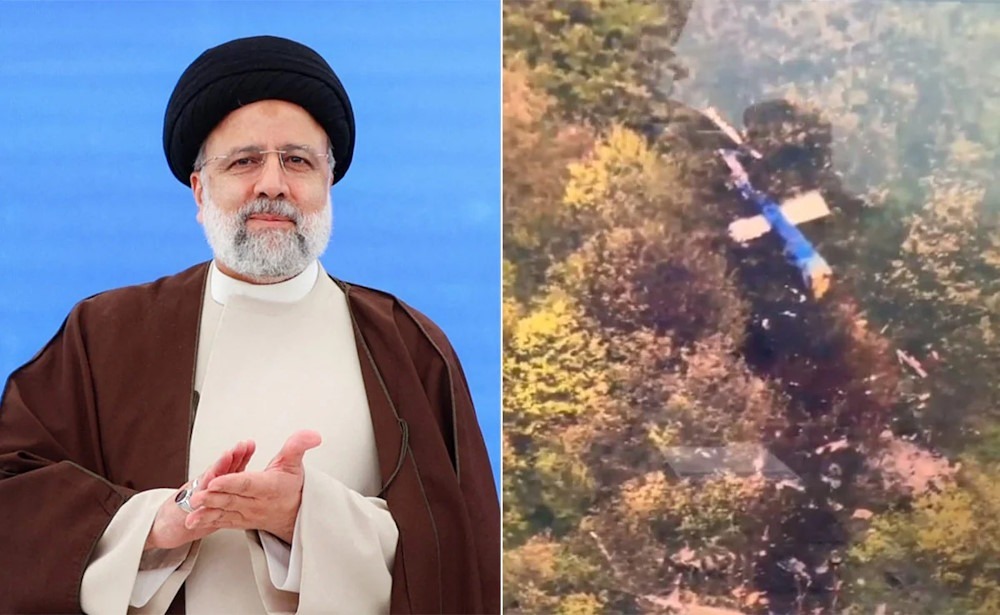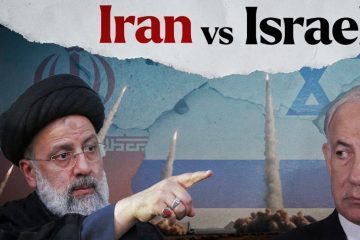Hard-line Iranian President Raisi passes away at the age of 63.

Ebrahim Raisi, who passed away on Sunday, ascended to the position of Iran’s eighth president. During his tenure, he presided over the deterioration of Iran’s relationship with the West and implemented a severe crackdown on civil rights amidst a significant protest movement that spanned decades. He was sixty-three years old.
Raisi experienced an unexpected incident while traveling in a helicopter in northwestern Iran, resulting in a challenging landing, as reported by state media.
Raisi, a conservative cleric and long-time confidant of Supreme Leader Ali Khamenei, assumed power following the 2021 elections. His triumph followed the marginalization of moderate and liberal factions, signifying the strengthening of anti-Western hardliners in the Islamic Republic.
Raisi assumed the role of a political newcomer. Iran’s former presidents were driven by strong political aspirations and actively pursued their own agenda during their time in office. In contrast, Raisi was widely perceived as a representative of Khamenei.
Raisi did not have military experience during Iran’s eight-year war with Iraq in the 1980s, setting him apart from some of his predecessors. On the contrary, he enjoyed a lengthy and successful tenure in the judicial system, serving as a prosecutor. Throughout his career, he became known for his firm stance and intolerance towards political opposition. Prior to assuming the presidency, he gained notoriety among Iranians for his involvement in a 1988 commission that sentenced numerous political prisoners to death.
“I don’t think many Iranians will feel sad about his death,” commented Abbas Milani, the director of the Hamid and Christina Moghadam Program in Iranian Studies at Stanford University. Throughout his presidency, the economy experienced significant declines while the violence persisted without any signs of slowing down.
Raisi was born into a clerical family near the city of Mashhad, which holds great significance for Shia Muslims due to the presence of a revered shrine. At the tender age of 15, he embarked on a journey that would shape his future – enrolling in an Islamic seminary. In the early 1980s, he tied the knot with Jamileh Alamolhoda, the daughter of a prominent cleric who leads the Friday prayer, the primary weekly religious gathering, in Mashhad. After obtaining her doctorate in philosophy, she now imparts her knowledge as a professor at Shahid Beheshti University in Tehran.
During his early years, Raisi had the opportunity to study under Khamenei in the 1990s, and he remained steadfast in his alignment with the leader’s positions. As a gesture of appreciation, Khamenei bestowed a series of promotions upon his protégé. In 2016, he granted Raisi significant authority by appointing him as the steward of the Astan Quds Razavi charity, which holds immense value and plays a crucial role in the supreme leader’s commercial endeavors. After his initial unsuccessful bid for the presidency in 2017, Raisi was appointed by Khamenei to lead the influential judiciary.
Some speculated that Raisi’s strong bond with Khamenei, who was over 20 years his senior, indicated that he was being prepared to take over as the next supreme leader.
Under Raisi’s leadership, Iran took a different approach by shifting its focus away from diplomatic relations with the West. Unlike his predecessor who signed an international nuclear deal with world powers, he adopted a more assertive approach towards foreign countries, including Israel. In addition to this, the government worked to enhance relationships with China and Russia, aligning with Iran’s strategic shift towards the east.
He maintained strong connections with the Islamic Revolutionary Guard Corps, an organization that has significantly increased Iran’s military presence overseas over the past decade. This includes supporting militias near the Israeli border and gaining substantial influence both financially and politically within Iran.
Under Raisi’s leadership, there was a significant increase in the suppression of Iranians, particularly evident during the widespread protests of 2022. These protests were sparked by the tragic death of Mahsa Amini while in police custody, who had been arrested for allegedly breaching the country’s Islamic dress code.
Raisi oversaw widespread imprisonment of journalists, political activists, and dual citizens, which included Americans. During Raisi’s tenure, Iran intensified its detentions of foreign nationals, including numerous Europeans who were unjustly held for extended periods without a fair and impartial trial, as reported by Western governments. In the past, the majority of dual citizens with Iranian passports were frequently incarcerated by previous administrations.
“Raisi was characterized as more of a bureaucratic figure rather than a forward-thinking leader,” commented Mehrzad Boroujerdi, an expert in Iranian politics and the vice provost and dean of the College of Arts, Sciences, and Education at Missouri University of Science and Technology.
“Boroujerdi highlighted one of his remarkable achievements as the successful reconciliation with Saudi Arabia,” he said. Unfortunately, the actions taken by his administration, such as the harsh suppression of the ‘Women, Life, Freedom’ movement in 2022, the strict enforcement of hijab laws, the support for Russia in the war against Ukraine, and the conflicts with Israel, have significantly overshadowed his presidency.
For everyday Iranians, the enduring impact of Raisi’s time in office will likely be the worsening economic struggles, exacerbated by Iran’s increasing isolation and Western sanctions. These challenges have pushed countless families into severe poverty, destitution, and unemployment.
His government’s actions will be remembered by many Iranians, especially the younger generation in urban areas and ethnic minority groups, for their suppression of political dissent and their stifling of freedom of expression and social liberties. His government’s initial response to the Covid-19 outbreak in Iran, which occurred earlier than in many other countries, only served to erode trust in authorities even more.
Raisi’s victory in 2021 can be attributed to a remarkably low turnout of 48.8%, which indicates the deep divisions within Iranian society and the prevailing sense of apathy and dissatisfaction among Iranians due to the limited options available in the vote.
Under Raisi’s leadership, there has been a noticeable increase in apathy. The parliamentary vote earlier this year witnessed an alarmingly low turnout, continuing the trend of declining participation.
Raisi is survived by his loving wife and two beautiful children.










